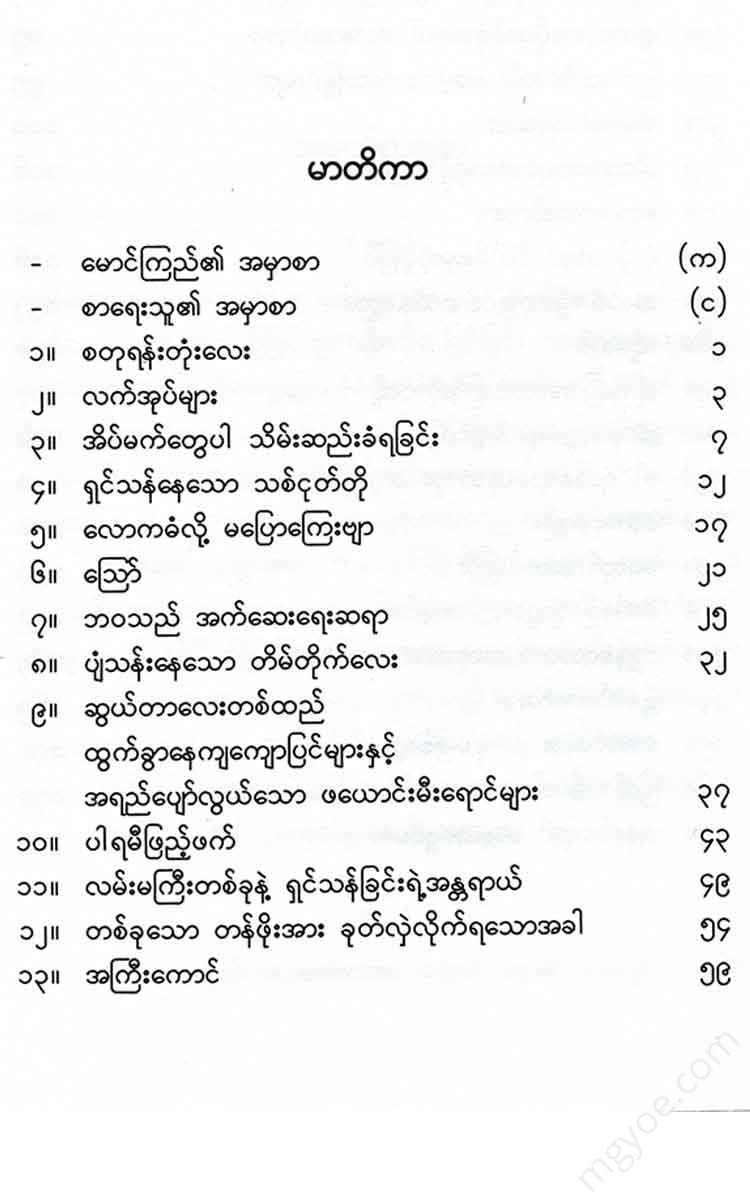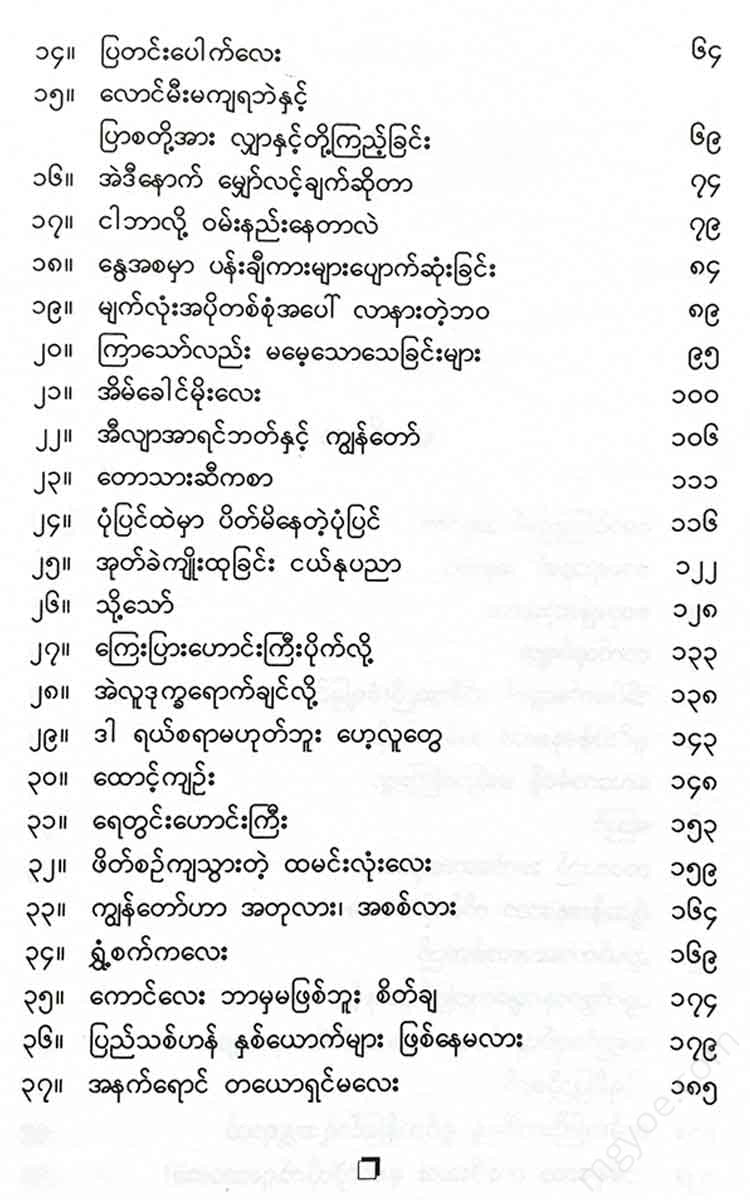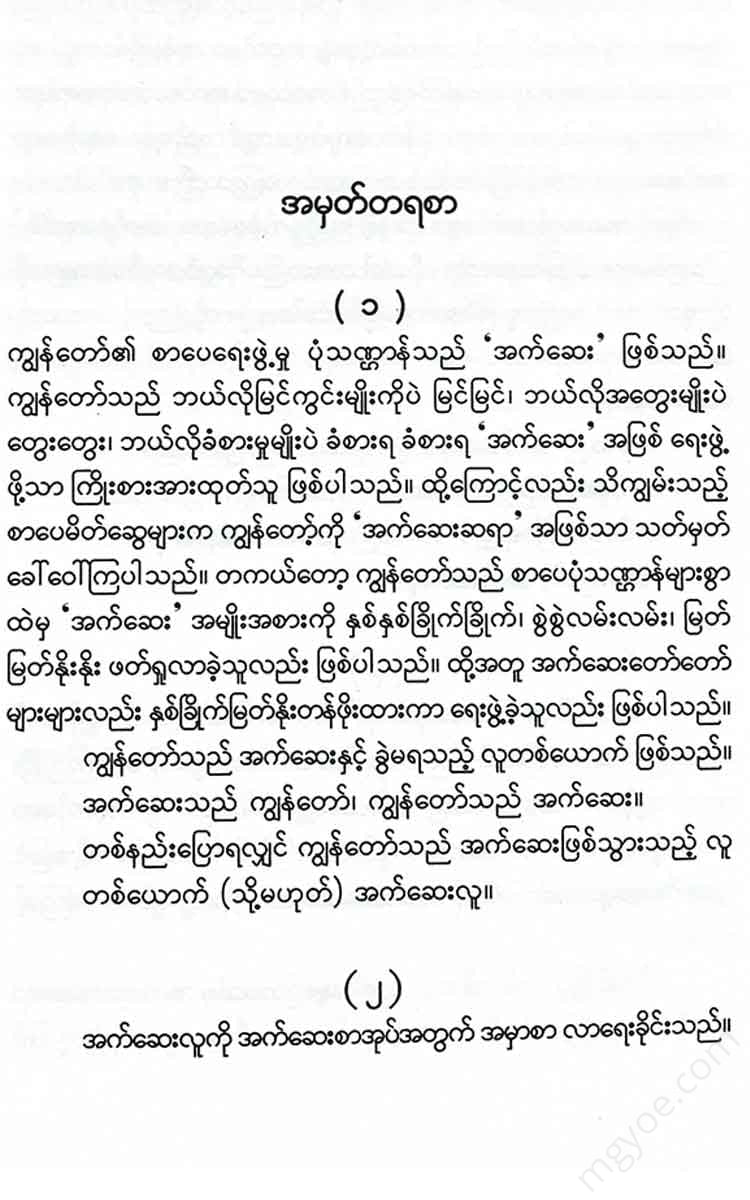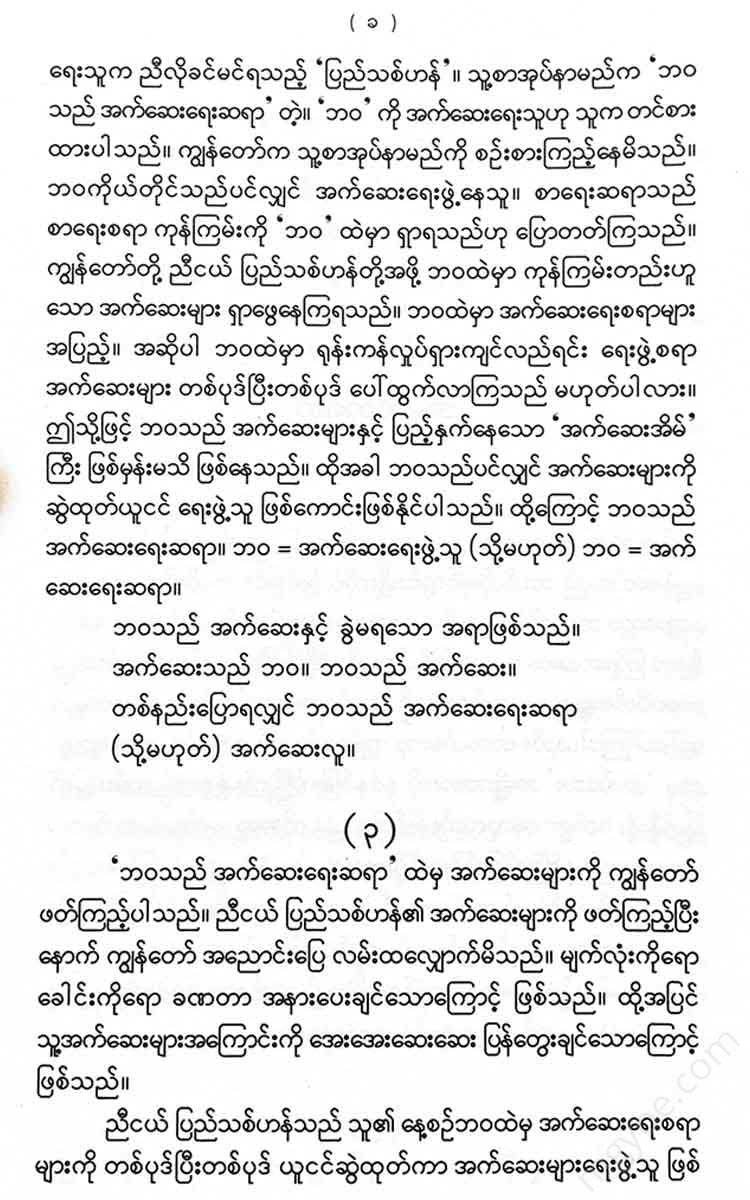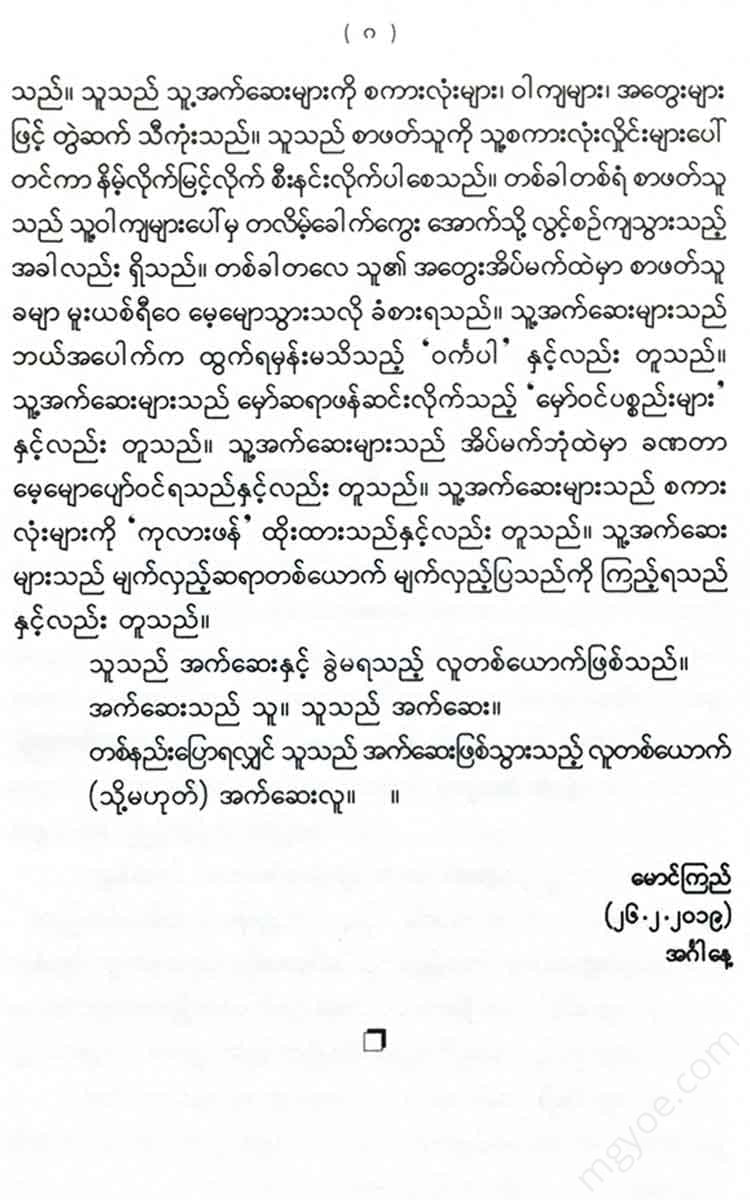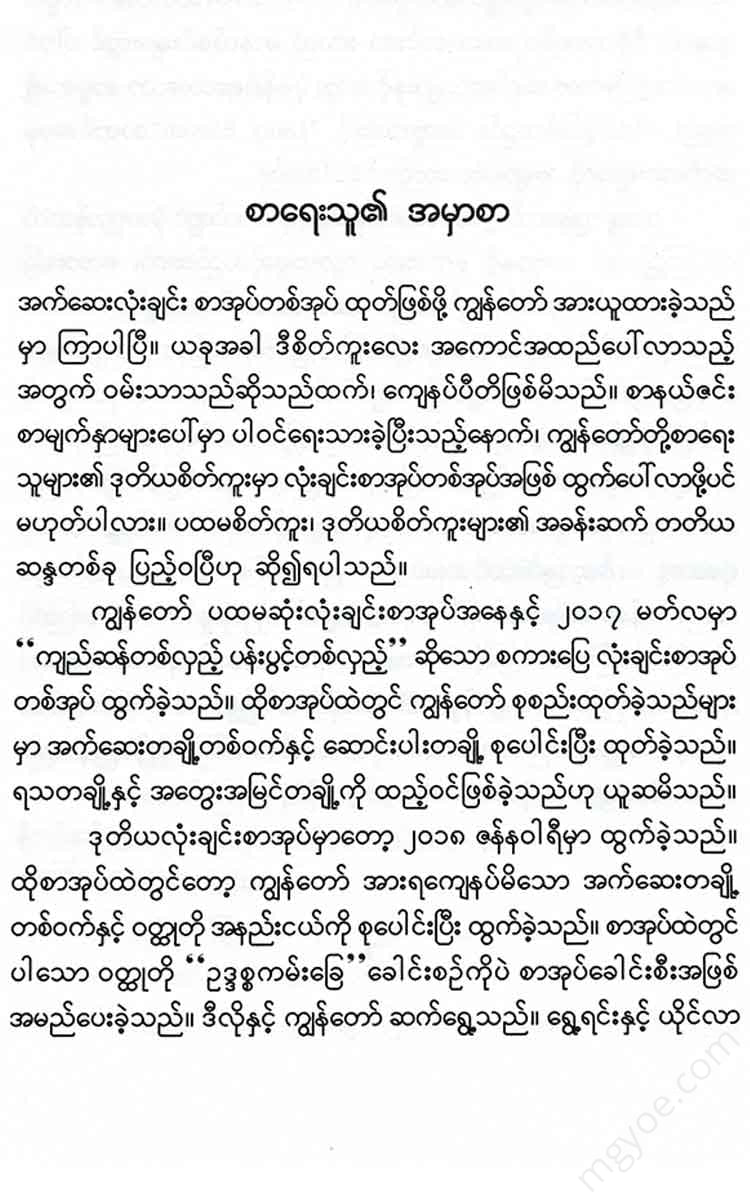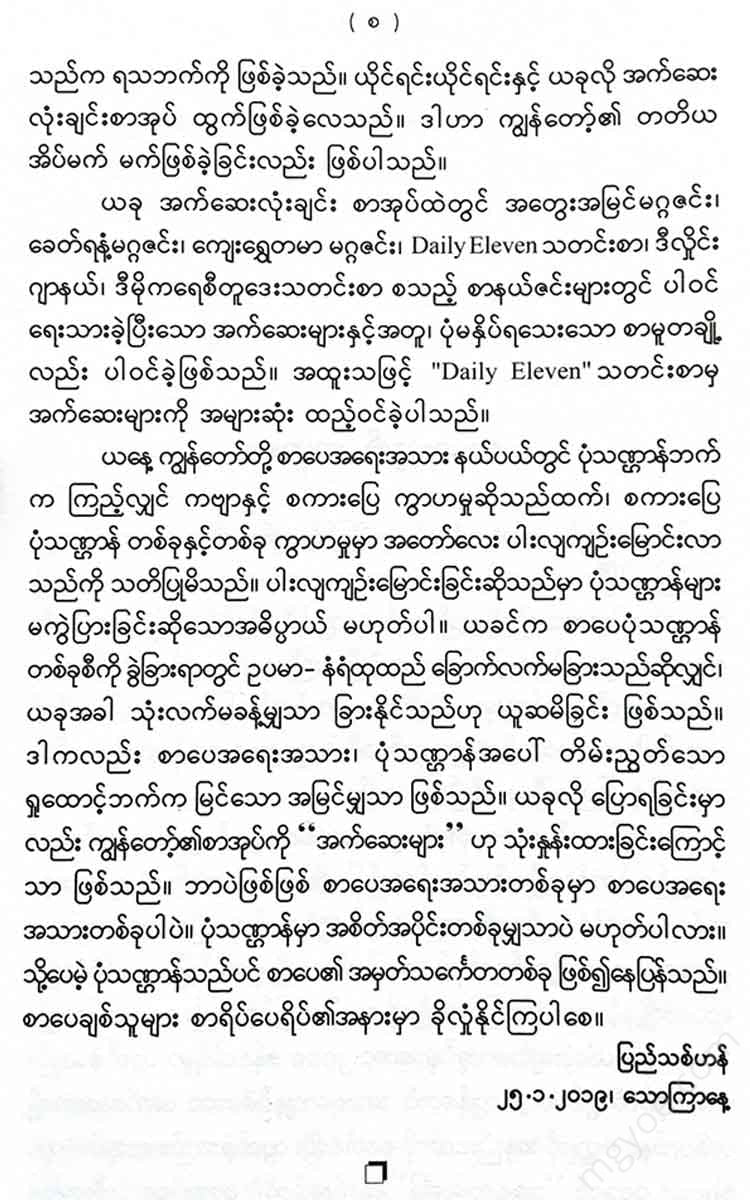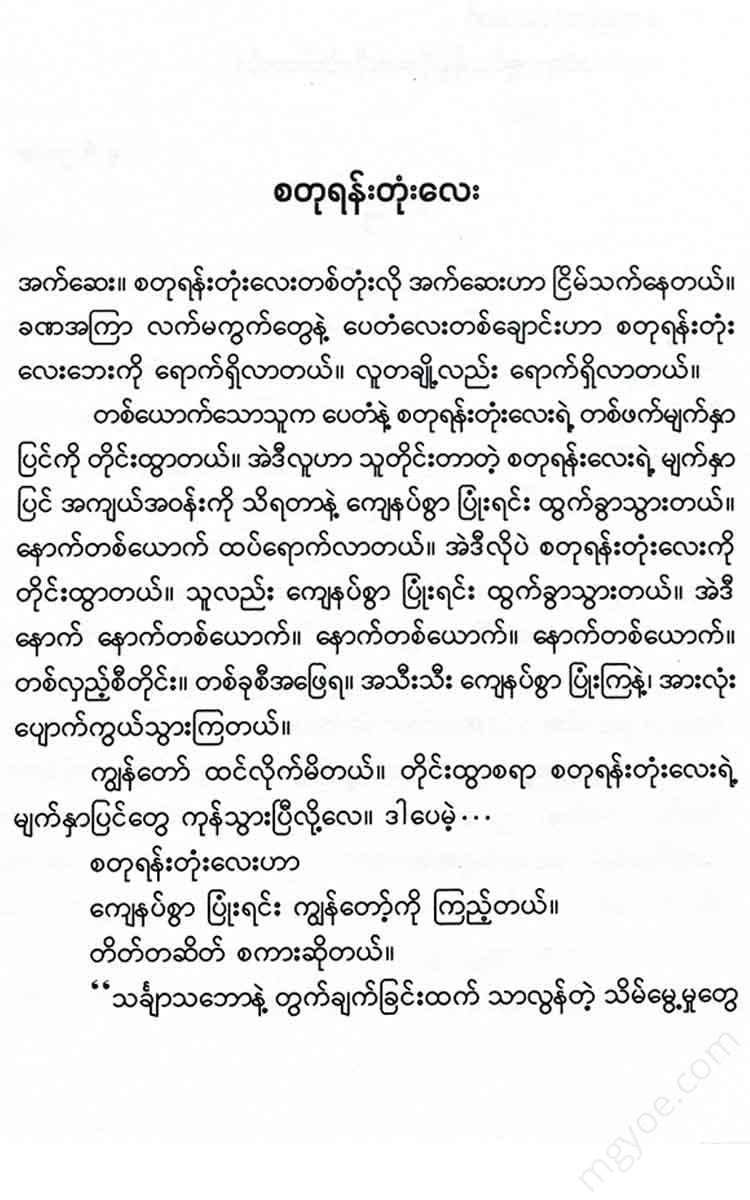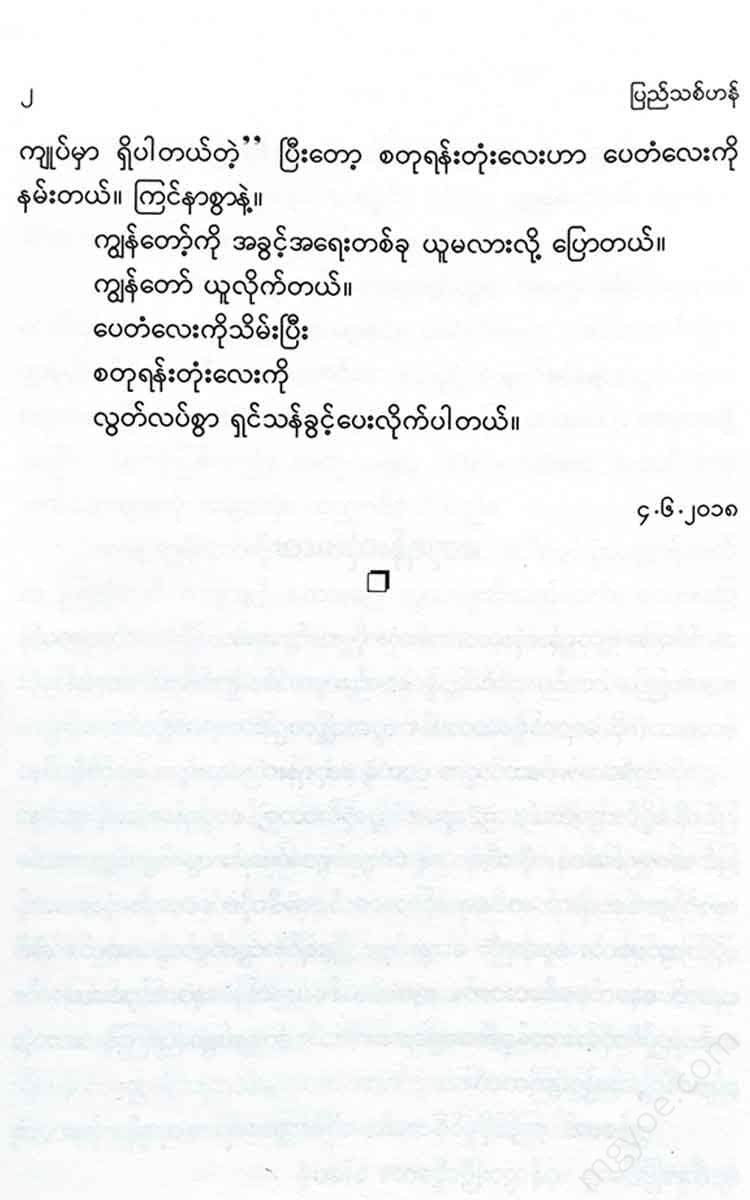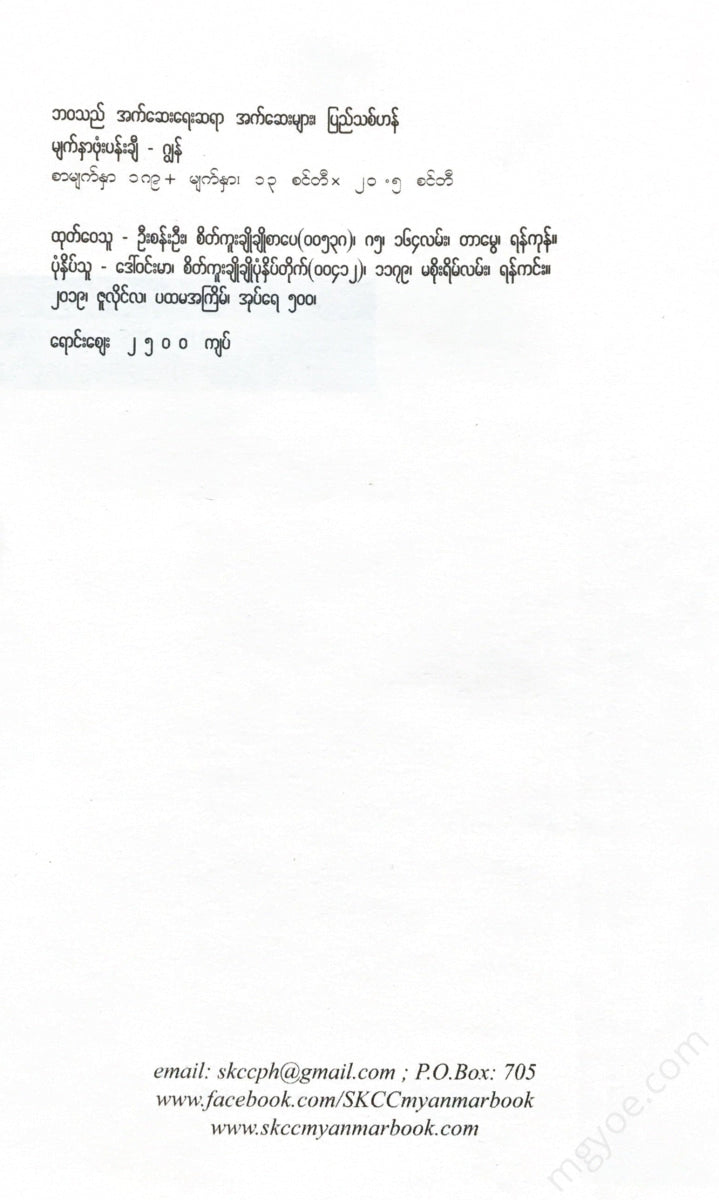စိတ်ကူးချိုချိုစာပေ
Pyay Thit Han - Life is an Essay Writer
Pyay Thit Han - Life is an Essay Writer
Couldn't load pickup availability
Manuals
We call the two hands, each consisting of five fingers, the left hand and the right hand. A person who uses the left hand to work or eat is called “left-handed.” The same goes for the right hand. “Left-handed” (or “Right-handed”). The left hand controls the left hand. The right hand controls the right hand. The left hand does not know the strength of the right hand, and the right hand does not know the strength of the left hand. (There are exceptions.)
The union of the left and right palms is called “hands”. When many people and many hands are united, it is called “hands”. I cannot say exactly when, when, or from which era these handshakes originated. However, the meaning of “hands” can be discovered by digging into them. These “hands” cannot be bought. They cannot be borrowed. They cannot be stolen. A Buddhist can clearly see the “hands” being folded in front of the “Five Infinites”. At that time, these “hands” come to life. They become special and profound. They can also cause joy. They can also cause sorrow. Handshakes - Handshakes .....
Culture and culture, respect and culture, respect and culture, culture and people, people and culture, the meanings and implications of culture, etc.
How are culture and culture related? The term culture is a very broad term, so we will only look at culture in general. People who are respected and respected, and those who are respected, are treated with respect and dignity. As they treat each other, culture comes to be referred to as a human quality. The respect and admiration that go hand in hand with culture, together with culture, “ends” as culture.
In fact, there is a lot of cultural territory before we even get to the handshakes. Suppose we are going to meet a friend whom we respect and love. We have to meet as “culturally” as possible. We live in a cultural territory where mutual respect is maintained and cannot be denied. I remember an incident related to culture a few years ago. It was about the issue of women not being allowed to enter or leave the Shwedagon Pagoda. Here a woman of different faiths raised a question. She asked if it is forbidden in Buddhism. To this, a prominent monk once answered, “It is not forbidden in Buddhism. It can be said that it is cultural.” Handshakes cannot be easily broken because of culture. Handshakes can only occur after they have been established on the basis of time and gravity.
People and rituals will always be connected. And the implications of these rituals. Whether it is cultural, respectful, or respectful, every time rituals are created, they always leave implications. The rituals may be a kind of self-deprecation, but on the other hand, the ability to have or not to have the dignity that is worthy of these rituals is also a kind of implication behind the rituals. The question here is whether the emergence of rituals is worthy and not the emergence of rituals? It can be argued. If you do not want to accept it, you can also reject it. However, it is because some rituals are suspicious.
I have been suspicious of some of the handbooks for a long time. When I think about these handbooks, I find that both the owners of the handbooks and the people who are being handbooks are not honest. I am not trying to put down the price of the handbooks because I am evil. The handbooks that I am suspicious of are the ones that are being formed on the basis of trivial reasons. That being said, I do not have any intention of interfering with the other party. In a society that has transcended the realm of the infinite and the infinite, handbooks are becoming more and more important. These handbooks are ...
The handcuffs that form in front of dictators, the handcuffs that are bent on self-interest, are too much to be humbled to the point of being bowed down to.
What do readers think of these handbooks, such as the desire to promote leaders within an organization and the madness that leads to the formation of handbooks? What are the implications behind these handbooks? There can be no difference. I would like to say that they are just “stuck” handbooks that are stuck together to make them into handbooks.
Thought Magazine, January, 2018.


